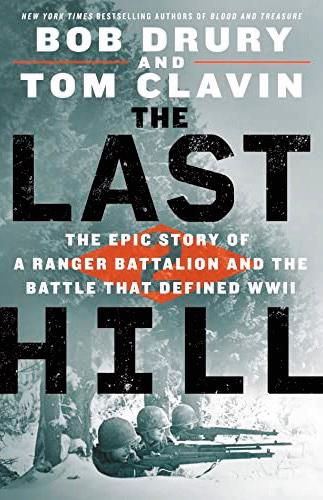Ronald Reagan made the 2nd Ranger Battalion famous with his 1984 “Boys of Pointe Du Hoc” speech. There, he extolled the exploits of the Rangers who scaled those heights on D-Day, June 6, 1944. Ever since, many believe that the Rangers started and ended their World War II efforts on that day in June.
In fact, the battalion faced challenges throughout 1944. “The Last Hill: The Epic Story of a Ranger Battalion and the Battle That Defined WWII,” by Bob Drury and Tom Clavin, shows that D-Day was just the start of the Battalion’s World War II combat.






